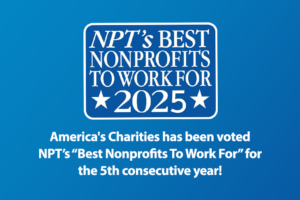Sarah Ford | April 29, 2014
John Wayne Cancer Institute Led Melanoma Research Published in the New England Journal of Medicine
International trial affirms sentinel node biopsy pioneered at the Institute saves lives
In the largest study of its kind, researchers have confirmed that a strategy to assess the spread of melanoma—pioneered by scientists at the John Wayne Cancer Institute—saves lives and spares some patients from troubling surgical side effects.
The study, called the Multicenter Selective Lymphadenectomy Trial (MSLT-I), focused on a revolutionary procedure discovered by the late Dr. Donald L. Morton. More than 30 years ago, Dr. Morton suggested that the spread of melanoma could be determined by examining the lymph node closest to the original tumor. Lymph nodes are a network of small, round structures containing clear fluid that traps bacteria, cancer cells and other harmful substances. Cancer can spread throughout the body via the lymph system. Traditionally, doctors removed all of the lymph nodes in the area of the primary tumor to thwart the spread of cancer. However, this extensive surgery increased the risk of pain, infection and long-term swelling.
Dr. Morton suggested, however, that removing only the lymph node closest to the tumor, dubbed the sentinel node, provided an accurate assessment of how the cancer might spread without having to examine additional nodes. Sentinel node biopsy has been widely embraced and now applies to other cancers, such as breast cancer.
The new study, released in February in the prestigious New England Journal of Medicine, confirms the long-term value of sentinel node biopsy for patients with melanoma. The randomized trial featured 2,000 patients who—at the time of surgery to remove the primary tumor—had either sentinel node biopsy or who had no lymph nodes removed. The patients who did not undergo sentinel node biopsy were closely observed to see if cancer appeared later in the lymph nodes.
The 10-year study, authored by Dr. Morton, Mark Faries, MD, director of the Institute’s Melanoma Research Program, and an international group of colleagues, showed that early removal and analysis of the sentinel node at the time of surgery decreased the chances of the melanoma recurring. After 10 years, among patients who underwent sentinel node biopsy, 71.3% were still free of cancer, compared to 64.7% in patients who had only follow-up observation. For patients with melanoma in their lymph nodes, early treatment using the biopsy technique increased survival by 44%.
The study, confirms that removal of the sentinel node helps prevent the spread of disease and that it’s possible to spare patients with a noncancerous sentinel lymph node from the painful and unnecessary removal of surrounding nodes.
Get Resources and Insights Straight To Your Inbox
Explore More Articles
For Fifth Consecutive Year America’s Charities Named ‘Best Nonprofit To Work For’
Washington, D.C. – April 1, 2025 – America’s Charities, the nonprofit that mobilizes the power of giving as a leading provider of volunteering, workplace giving,…
Read ArticleWorkplace Fundraising + Volunteering Summit (April 2nd and 3rd, 2025)
Join us in attending this virtual summit! The America’s Charities team is joining up with other leading voices in the workplace giving space for a…
Read ArticleThe Time to Act is Now
The results of the 2024 National Assessment of Educational Progress (NAEP) are in, and the findings are, in a word, heartbreaking. This assessment serves as…
Read ArticleGet Resources and Insights Straight To Your Inbox
Receive our monthly/bi-monthly newsletter filled with information about causes, nonprofit impact, and topics important for corporate social responsibility and employee engagement professionals, including disaster response, workplace giving, matching gifts, employee assistance funds, volunteering, scholarship award program management, grantmaking, and other philanthropic initiatives.




